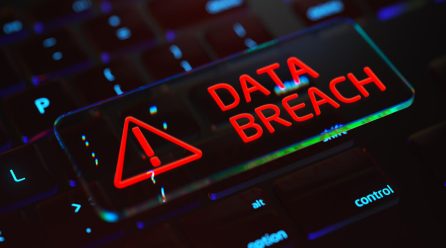The global gambling and gaming industry is booming and has been forecast to reach $876 billion by 2026 according to recent reports. Yet, despite being tipped to maintain its recent rapid growth, this dynamic and innovation-prone sector faces its own set of growing compliance challenges and risks.
The global gambling & gaming industry has experienced unprecedented growth in the past few decades – especially with the advent of new technologies, products, and market entrants. Over 80% of the world’s population is involved in some form of gambling – this is primarily attributed to the emergence of online casinos and virtual sports betting centres.
The sector’s migration to the online world has not only brought forth unthinkable potential and opportunities, it has also brought along its own set of increased risks such as financial crime, bribery & corruption, data privacy violations, and underage gambling. With these pressing challenges, it’s no surprise that governments and independent regulatory bodies are diligently laying down regulations and restrictions to minimise risks while also passing new legislation relating to competition & innovation – to protect consumers and prevent unlawful practices.
Risk Management Strategies for Online Casinos and Sports Betting Operators
In this blog, we focus on five key challenges faced by compliance teams in the gambling & gaming industry. We take a deep dive into how the latest GRC technology can support compliance teams to successfully comply with evolving regulations, prevent bribery & corruption, implement anti-money laundering measures, avoid conflicts of interest, protect data, and introduce effective disclosure procedures.
1. Achieving Regulatory Compliance Across Multiple Jurisdictions
Gambling regulations aim to enable operators to avoid financial and legal risks, prevent problem gambling, build a strong reputation, and maintain an ethical legal standing. Operators must adhere to the laws, regulations, and guidelines set forth by relevant authorities to promote responsible gambling – this includes preventing harmful gambling and safeguarding vulnerable individuals and minors.
While compliance is a cornerstone for sustainable growth in the casino industry, it also presents operators with various regulatory hurdles. These include having to comply with strict compliance regulations specific to different jurisdictions, having to stay updated on constantly evolving laws, and conforming to restrictions that don’t favour operators (such as a range of limits on advertising).
Every country has its own approach to gambling compliance. In the UK, the sector is heavily regulated by both government and non-governmental organisations such as the UK’s Gambling Commission. While in the US and Canada, each city or state has its own rules and regulations for its gaming establishments. Each state is free to regulate or prohibit gambling within its borders – Nevada and Louisiana are the only two states where casino-style gambling is legal statewide – this shows just how drastically laws can vary between regions. In contrast, countries such as Brazil are just starting to take gradual steps towards implementing a regulatory regime. Keeping up with the regulations across each jurisdiction and ensuring compliance is a huge challenge for gaming companies.
Regulatory compliance in this industry demands due diligence, collaboration with regulatory bodies, and investment in the right technology to navigate the complexities of its unique regulatory landscape. As the sector continues to evolve, balancing regulatory demands with innovative GRC technology is the key to its success.
How Technology Can Help:
GRC software offers a wealth of functionality to support regulatory compliance across multiple jurisdictions. Organisations can create a searchable, digital obligations register online to maintain a comprehensive repository of regulations, standards, and licensing requirements relevant to each jurisdiction they operate in. Each obligation can be easily mapped to the corresponding business processes, internal controls, and policies that ensure compliance with the regulation.
Many GRC platforms integrate with regulatory content providers, enabling gambling & gaming companies to subscribe to relevant regulatory content packages and receive live change notifications. These notifications break down the complex legal jargon into easily digestible data, written in plain English, detailing what needs to change. The notifications are mapped to the digital obligations library so the regulation owner can easily see what business processes, controls, and policies may need to be amended as a result of the change.
Regulatory change is managed through dynamic workflows that document the full step-by-step change process, producing a full audit trail for regulators across multiple jurisdictions. Teams can easily track progress against obligations and corrective actions at all stages. The platform can help identify and assess compliance risks associated with different jurisdictions, allowing companies to prioritise and implement risk mitigation strategies.
The right tool will bring speed, efficiency, and enhanced reporting to your compliance team – making it easy to understand compliance status across multiple jurisdictions through a series of interactive status reports and dashboards. Adding automation through GRC software facilitates quick, confident, and risk-informed decision-making that prevents financial loss and reputational damage and enables gambling & gaming firms to get new games to market quickly – with confidence that they are compliant.
Discover Camms’ GRC Software.
2. Bribery & Corruption
One of the major challenges facing the gambling and gaming sector is bribery & corruption – which can have serious consequences for the industry. Bribery & corruption leads to mistrust and dissatisfaction among employees and customers alike – resulting in significant financial losses and fines for operators. Bribery & corruption in the casino industry can manifest in several forms, including collusion, money laundering, excessive corporate gift giving, and bribing officials & regulators to maintain licences and secure contracts. These actions can be motivated by various factors such as external influences or financial pressures.
The first step towards safeguarding a gambling & gaming business is to implement anti-bribery & corruption measures such as a gifts & hospitality processes, anti-bribery policies & training, conducting risk assessments, formalising due diligence procedures, and ensuring staff have an anonymous place to report potential bribes. Establishments must also further police procedures & controls to limit dealings with corrupt companies and to prevent staff bribing regulators & officials – they must also perform supplier due diligence.
How Technology Can Help:
Implementing a robust GRC solution can help organisations to formalise their anti-bribery & corruption measures – to reduce the risk of compliance failures. GRC technology offers a best practice gifts & hospitality process enabling staff to log the giving and receiving of corporate gifts. Teams can set thresholds based on employee role and workflows formalise the escalation and approval process. Any high value gifts that could constitute a bribe will be flagged.
GRC software also offers policy management functionality, teams can house all their policies online in one place and the entire policy management process can be automated – from policy creation & approval to change management & employee attestations. Expiry dates are flagged, and policy changes & updates are logged and circulated. The system can easily provide evidence of who attested to the policy – covering the organisation in the future if the employee does not follow the policy. GRC software can also be used to formalise & automate risk assessments and due diligence checks, workflows can be set up to flag potential bribery attempts.
Many GRC platforms offer online portals for employees to report potential bribery or misconduct. Having a formalised and discreet way to report potential bribery, establishing effective channels for reporting concerns, and ensuring protection for whistleblowers, contributes to an establishment that is actively seeking to prevent bribery & corruption.
3. Anti-Money Laundering
Any business accepting payments from customers faces the risk that cash has come from illegal activities, but gaming & gambling companies deal with significant volumes of customers and large sums of money – increasing their vulnerability. On top of this, bookmakers handle a variety of different transactions including large cash payments, bets made with stolen money and illicit funds, prepaid cards, and identity fraud – which can all result in money laundering to some degree.
In 2022, the gambling industry witnessed a 50% increase in the fraud rate during the first quarter – highlighting the susceptibility of casinos to financial crime. These challenges encompass money laundering, fraud, and corruption – primarily due to the substantial sums of money in constant circulation within casinos.
Currently, an increasing number of casinos are being held responsible for their insufficient anti-money laundering (AML) controls. Casinos and gaming companies that do not take action to avoid money laundering in their companies face dire consequences. Some of the recent fines levied against casinos for money laundering responsibility failures include a £3.8m fine against Genesis Global, a £2m fine levied against BetVictor and a £9.4m fine against 888 UK Limited.
As regulatory bodies continue to crack down on the sector and impose harsh penalties against businesses that fail to correct deficiencies in their AML processes; gambling operators have a responsibility to combat money laundering by implementing anti-money laundering measures.
How Technology Can Help:
In an environment where money laundering and financial crimes are on the rise, gambling & gaming establishments that utilise GRC technology to detect, prevent, and mitigate the risks associated with money laundering activities will thrive. Most modern GRC platforms offer API integrations with other systems & data sources enabling organisations to set up controls & checks against financial transactions & customer data to detect fraudulent activity.
The software can be used to set up workflows to formalise and automate customer due diligence checks, identity verification, and a ‘Know Your Customer’ (KYC) program – to detect potential money laundering activities. The software can be used to identify high risk customers enabling additional monitoring measures to be introduced – such as transaction monitoring and behavioural analysis.
Software can also be used for transaction monitoring and scoring, and it can notify stakeholders of unusual, large, or duplicate transactions or unmatched invoices. The automated workflows in the platform streamline AML processes and facilitate comprehensive case management to ensure problems are escalated & resolved – capturing a complete audit trail of events.
4. Conflicts of Interest
According to the UK Gambling and Gaming Commission, a conflict of Interest is a “set of circumstances that creates a risk that an individual’s ability to apply judgment or act in one role is, or could be, impaired or influenced by a secondary interest”.
The commission recognises potential conflicts of interest to include financial interests, conflicts of loyalty, and professional & political interests. To manage these, gambling & gaming companies should implement strict disclosure procedures enabling employees to discreetly report potential conflicts of interest. They should formalise clear operating policies & procedures that communicate a clear code of conduct to employees.
How Technology Can Help:
With the right GRC technologies, casino establishments can better manage conflicts of interest by providing a structured way for organisations to capture and report on issues via a discreet reporting portal.
GRC technology can also formalise checks & screening against transactions that may cause a conflict of interest. Each staff member creates a profile, providing relevant personal and professional information, including financial interests, relationships, and affiliations – this data is held on record, making it easy for firms to perform due diligence checks in the future by comparing disclosed information against predefined rules and criteria – reducing reliance on manual reviews. The platforms can often link to (HR) systems via API integrations – allowing seamless access to employee information.
GRC platforms can formalise workflows & approval processes for conflicts of interest – maintaining a comprehensive audit trail of conflicts of interest disclosures, approvals, and resolutions. It can also enforce ‘conflict of interest’ policies by incorporating them into the platform & collecting attestations. It can even facilitate the risk assessment process to assess the risk associated with potential conflicts of interest. The real-time monitoring & reporting enables organisations to stay proactive in managing conflicts and provides leaders with access to up-to-date information on potential issues.
5. Data Privacy & IT Security
The Gaming & Gambling industry has eagerly embraced the digital revolution – some might say well ahead of time! However, with great innovation comes great responsibility, particularly in the realm of cybersecurity & data privacy.
Over the past couple of years, recent cyber incidents – particularly at some of the world’s leading casino and hotel chains – have raised fresh concerns throughout the sector regarding the protection of enterprise and client data alike; the losses in these recent incidents are anticipated at over $115 million.
This industry has always taken cyber threats seriously, but there are still very real risks to contend with. Ransomware, hacking, DDoS attacks, and app-based hacking are an ever-present danger. In addition, new ways of playing, new technologies, and the development of cryptocurrencies have the potential to impact cybersecurity further. This has made cyber risk management a top priority in the gambling & online gaming sector.
Gambling and gaming establishments also have an obligation to comply with relevant data privacy and financial regulations (like GDPR,NIST, PCI DSS and the California Consumer Privacy Act) – to prevent fraudulent transactions and data loss across multiple jurisdictions.
How Technology Can Help:
Leveraging a GRC platform plays a vital role in addressing data privacy and security. The right platform will provide organisations with the tools and capabilities to govern and manage cyber risk and ensure compliance with regulatory requirements & data privacy.
Teams can create a cyber risk register and automate cyber risk assessments through online forms that feed directly into the tool. Organisations can set up a ‘controls library’ and map controls to the originating risk to understand effectiveness. The tools provide a wealth of risk reporting and risk alerts, enabling cyber risk to be kept to a tolerable level.
GRC technology can also support with data privacy compliance. Teams can set up an ‘obligations register’ to monitor compliance against data privacy regulations and other IT related obligations. Organisations can access best-practice frameworks and set up workflows to manage data privacy regulations like ISO 27001, GDPR, NIST, PCI DSS and CCPA – ensuring compliance. They can also use the tool for IT policy management to ensure cyber policies are up to date and being followed by employees, and for IT asset management to ensure all equipment is current and all software licences are up to date. Managing all these aspects of cyber security & data privacy in a single platform provides leadership teams with a complete overview of the organisation’s cyber security posture through a series of insightful dashboards & reports.
Discover Camms’ Cyber Risk Management Software.
GRC Software Configured for the Gambling and Gaming Sector
Implementing a GRC platform to manage cyber risk and data privacy empowers gambling & gaming organisations to align with ethical standards, remain compliant, reduce risk, safeguard the integrity of the establishment, protect players, and maintain public trust.
GRC software offers a whole host of capabilities to simplify and automate these procedures – eliminating time-consuming manual checks and disjointed processes. Built-in dashboards enable teams to easily understand their pending and overdue actions to address problem areas quickly. The software further facilitates extensive reporting – enabling leadership teams to view potential regulatory breaches, conflicts of interest, bribery attempts, and fraudulent activity – at the touch of a button!
If you are a gambling or gaming operator feeling the pressure of regulatory scrutiny or having trouble navigating the challenges mentioned above, feel free to get in touch with us for a demo of our industry leading GRC platform. Find out more about how the Camms GRC platform is helping gambling & gaming organisations here.





